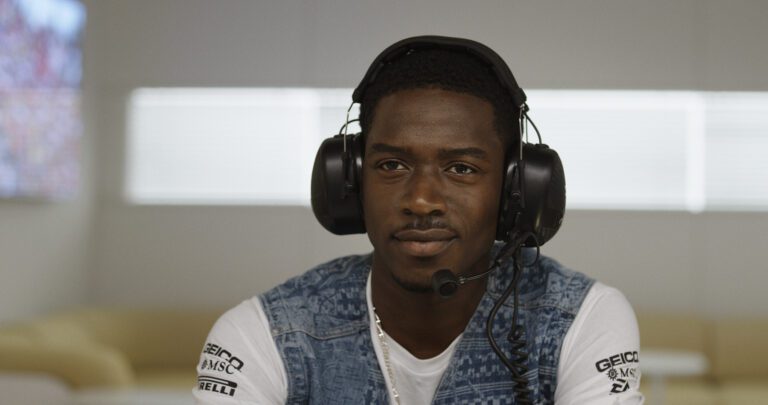Despite launching only two years ago, Wayward Creative Casting has already made quite a name for itself with over 50 commercials (including for Google, Telstra and Square), festival-circuit short films, and popular music videos under its belt.
Based on Gadigal land (Sydney, Australia), Wayward is headed by actor-turned-casting director Daniel Berini, who worked with Anousha Zarkesh and i4 Casting before starting one of Australia’s newest casting outfits.
We recently spoke with Berini to talk about the value of in-room auditions, fighting for fresh faces and much more.
Insights: Acting Advice from Daniel Berini
- Actors should recognize that a deep love for the craft and being on set is essential. Like Berini, who pivoted from acting to casting due to his passion for the process, actors should be open to exploring different facets of the industry where they can contribute most effectively.
- Whenever possible, actors should opt for in-person auditions rather than relying solely on self-tapes. In-room sessions provide valuable opportunities to work with the material and connect with the casting team.
- Emerging actors should stay updated on Wayward Creative Casting’s social media for open casting calls and respond specifically to roles that fit their profile. It’s more effective to reach out in the context of a particular job rather than sending general inquiries.
- Casting directors like Berini value actors who don’t take themselves too seriously and are willing to dive into roles with authenticity and minimal effort. Actors should focus on connecting with the character’s core and bringing their own lived experiences to the role.
- If actors have agents, they should ensure their agents are actively submitting them for relevant roles. If actors believe they are suitable for a role and haven’t been submitted, they should request their agent to put them forward for consideration.
You started as a fellow actor before turning to casting. Do you remember what prompted this pivot?
I do, actually! It was a gradual pivot, but there was a specific moment of clarity. I was shooting a feature in Melbourne and having a pretty terrible time for various reasons. I’d been struggling to find creative motivation as an actor for a while despite having consistent work, but no matter how much I doubted myself, I always felt an intense pull back to it.
I realized one day, while sitting on this film set, that the thing that kept pulling me back had nothing to do with my ambitions to be a better actor, but simply my absolute love of being on a set, surrounded by the hardest working people you’ll ever meet, hustling to get cool stuff made. It was nothing revolutionary, but it became clear to me that my passions for the industry were sound; however, it was [on] the other side of the camera that I felt better placed to contribute.
I’d always been fascinated and somewhat terrified by the casting process and, for whatever reason, felt a pull into that world. After the director, casting is almost always the first production attachment to a project.
It’s thrilling to be involved so early on and work alongside the director and producing team to shape and color a project, finding unique and wonderful people—whether from an acting background or someone we bump into on the street. I felt there were ways the casting process could be more open-minded and more engaged with the broader acting community, and so my journey began!
Do you feel your performer background has shaped your casting process?
Oh, without a doubt. There’s no such thing as “casting director school,” but if that did exist, the core training should certainly include working as an actor for a while!
It’s not only brought me a practical perspective on the casting process, but I’m better able to direct performances and guide actors, having been in that position myself. I’m also equally informed by the things that I didn’t like about my casting experiences as an actor, so I make active efforts to improve the experience for everyone I deal with.
You’ve now been in the casting game for almost a decade. What do you consider the most rewarding aspect of your work?
Being able to meet so many interesting people from all walks of life is extremely rewarding. Whether casting a fun TVC or a narrative project, it’s always an awesome ride to hear people’s stories and see how these stories, and differing backgrounds and experiences, can inform and change a character or a project. We’re in the “people business,” after all.
Finding the right person for a role is more complex than just putting out a casting call and seeing who can learn their lines the best. My team and I are constantly engaged with the community around us and are always on the hunt to uncover a fresh face and all the good that comes with that.
On the flip side, what has proven to be the most challenging aspect of your work?
Contrary to what many may believe, the casting director doesn’t get to pick the person for the job! Of course, we make our recommendations and facilitate the process, but the final call isn’t ours.
We are almost always aligned with the creative directors we work with, but occasionally, we find ourselves in a situation where despite campaigning for an actor we all feel very strongly about for a particular role, we can’t get them over the line. This is more likely to happen with commercial work, where there are so many layers and levels to the decision-making process, with so many factors to consider outside of the talent perspective. But that’s the nature of this game, and I’ve always enjoyed it, no matter the odd challenge.
How has your casting process evolved, or remained the same in recent years, given all the shifts we’ve seen in our industry?
COVID certainly shook things up, that’s for sure. The most significant shift in our industry has unsurprisingly been the increased reliance on a virtual audition process. Nearly every casting company in Australia surrendered their studio space during the pandemic and turned to self-taping, which was essential at the time.
What bothers me a bit is how this practice has continued at full throttle in a post-COVID world without any pause to re-evaluate. The obvious positive to self taping is that a casting company can cast the net much wider and see more people per role than we used to—which is most certainly a good thing.
I do feel that an end-to-end casting process, where almost all interactions occur at arm’s length, is problematic in the long run. I mean, what are we doing here if we’re not able to meet people in the room at some stage and work the material? For this reason, my team and I always do what we can to offer an in-room session alongside a self tape call.
We accept and appreciate that people have busy lives and are simply unable to find the time to come into our studio sometimes, but I do implore actors to take us up on the offer to come in, if requested, to play with the material. [This] can be invaluable, and hopefully, it’s way more fun!
How do you approach balancing calling in new talent vs. the established names?
This is probably the thing that I am most headstrong about. When starting in casting, I quickly realized that a lot of projects were being cast off what I call “hit” lists—detailed lists of actors’ names that either have a profile or are about to, that are used to piece together the “ideal cast,” usually grouped by who has the better agent. I have always felt this to be a very restrictive way of working.
That said, when it comes to narrative work specifically, it can be so difficult to get a project funded and off the ground without established names attached to key roles. That’s a reality that most would understand. However, I always make an active effort and push my team to run a casting call for these same key roles in parallel with any profiled negotiations.
The casting process is always a bit of a puzzle, and we never really know where things may end up, so why not cast a net and be open to changing people’s minds? Every established name was once an unknown.
Commercial work, on the other hand, is so fun because we’re not bound or motivated by the narrative financing dance, so we can always cast the net wide. I love collaborating with my commercial clients from the ground up, and always encourage them to keep an open mind when it comes to casting.
My team and I will bring in people from all walks of life, whether fresh out of drama school, an actor with decades of experience, or someone who has never acted before. You have just as much a chance to be seen by us, and we feel duty-bound to ensure that the stuff we’re making is truly representative of our modern society in all its beautiful complexity.
With this in mind, what’s the best way for emerging actors to get on your radar?
We’re always pumped to meet new people, but I feel it’s best to keep it connected to the work.
We encourage emerging actors to only reach out to the casting team in response to a specific job or role, as opposed to a general email. It’s not that we don’t want to hear from you otherwise, it’s that we receive such a high volume of emails and calls daily that it’s untenable to reply to individual actors when it’s not connected to a certain role we are casting.
The best thing to do to get on our radar is to follow our social media accounts, as we put out open casting calls for represented and non-represented actors all the time, and occasionally the billboard on Casting Networks as well, where actors can self-submit.
If you have an agent, it’s always best to get in touch with us through them. If you hear about a role we’re casting that you feel suitable for and haven’t been submitted by your agent, please contact them and request that you’re put forward. We’ll always offer you an audition!
Finally, are there any qualities you find endlessly engaging in performers?
Don’t take yourself too seriously! “Serious-actor-syndrome”—a common ailment for some fresh from drama school—is super boring. I’m a big fan of people willing to dive headfirst into a situation, no matter how silly.
It’s a little cliché of me to say, but those who find a way to peel back the fluff and connect with the core of a character, bringing their own lived experience to a role with the least amount of obvious effort, is powerfully engaging. The human element is the good stuff, after all, and acting is only really a compelling game of pretend, right?
Special thanks to Daniel Berini for his time. Be sure to follow Wayward Creative Casting on Instagram and Facebook for open calls and news updates.
Thinking about joining Casting Networks? Sign up for a free trial today!
You may also like:













